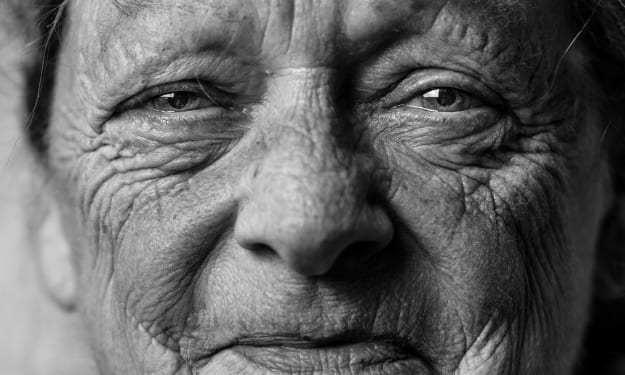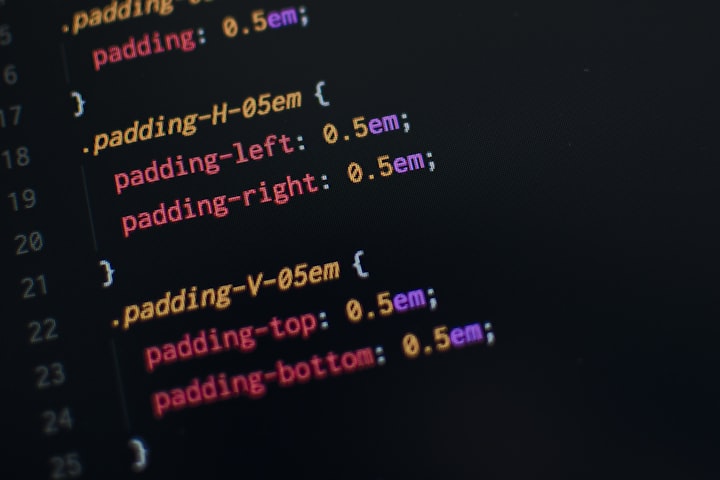Is Metaverse Technology Improving Mental Health Treatment?
For Mental Health Awareness Week, we explore the ways in which new technologies are improving mental health care.
It's been a wild beyond two years for every one of us. In the wake of encountering the tumults of the pandemic, unexpected market unsteadiness and an apparently perpetual chain of worldwide and common distress, the predominance of nervousness, sadness and other psychological well-being conditions has arrived at a stunning high. Indeed, even the World Health Organization (WHO) has said something regarding the risks of our mounting emotional well-being emergency, with one logical brief revealing a 25% expansion in psychological well-being issues since COVID-19 initially hit the world.
The social disconnection coming about because of the pandemic was perhaps the greatest test our advanced society has looked somewhat recently — causing extraordinary imperatives on individuals' connections, work lives, networks and in general mental prosperity. Subsequently, many individuals went to virtual assets for work, ordinary correspondence and, surprisingly, clinical consideration. It's likewise for this very reason that 92% of organizations purportedly accept the pandemic has sped up the improvement of metaverse advances.
As we leave the last phases of the pandemic and look towards our most memorable typical summer of the 10 years, it appears to be fitting that the current year's subject for Mental Health Awareness Week would be forlornness. Out of appreciation for the current year's occasion, we should investigate how creating advances are seeming to further develop psychological wellness treatment, decline the impacts of dejection and give more noteworthy admittance to mind — particularly as we see metaverse innovations expansion in promotion.
Utilizing XR innovation to battle depression
At the point when we couldn't actually meet with our partners, companions or relatives during the pandemic, video conferencing assisted us with remaining associated — regardless of whether it precisely supplant the vibe of genuine collaborations. With regards to the current year's topic for Mental Health Awareness Week, more vivid advances have previously been proposed by specialists as a stunningly better solution for those encountering social seclusion and dejection. The spatial idea of VR implies that collaborations inside additional vivid games and metaverse stages feel significantly more like being around individuals in reality.
During the pandemic, VR even tracked down a startling new gathering of clients — seniors. MyndVR has proactively worked with many senior living networks across the United States, seeing a critical flood in prevalence inside the most recent two years. Chris Brickler, fellow benefactor of MyndVR, has commented on the organization's rethinking from a young based gaming society to a "extremely protected, secure and senior-accommodating stage". Also, he remarked on the stage's prosperity during COVID: "We're simply really amped up for offering this support to such countless more seasoned individuals that are, you know, now and again desolate, fighting disconnection."
A new report from Frontiers in Psychology has likewise reasoned that XR innovation and more vivid gaming encounters have emphatically impacted clients — especially by "demonstrating the connections between contribution, prosperity, discouragement, confidence and social connectedness". That's what the review confirmed, while there is a gamble that VR can supersede face to face inclusion, solid social cooperations inside a VR climate actually "benefit players by fulfilling fundamental requirements of having a place and associating with others."
UCL additionally uncovered a particular VR intercession program that would substitute eye to eye treatment for discouragement, with the goal of assisting patients with expanding their capacity to show self-sympathy. Utilizing a virtual room, patients are shown two virtual symbols — both a youngster and a grown-up. In the primary portion, they go into the room as the grown-up — with the undertaking of consoling the youngster until their pressure is diminished. In the following fragment, they get to play as the kid — this time being support by the content of the grown-up. The empathetic content inside the module zeroes in on three key subjects: approving experience, diverting consideration and actuating a positive memory.
A developing group of logical examination presently additionally upholds the possibility that certain hallucinogenics, when directed by a specialist, can uphold a scope of emotional wellness conditions — including sadness, PTSD, enslavement and different sorts of nervousness. Presently, wellbeing specialists are in any event, hoping to reproduce the advantages of hallucinogenic helped treatment in the metaverse. The ability to understand anyone on a deeper level (EI) Ventures, a developing startup, is outfitting the force of VR to conquer geological and monetary hindrances that have recently obstructed individuals from getting to hallucinogenic treatments.
In the wake of getting a portion of a medicinally recommended hallucinogenic, EI clients will leave on a virtual excursion utilizing their VR headsets. As per organizer David Nikzad, every client's vision will be explicitly custom fitted to suit their extraordinary foundation, character and clinical history — fully intent on conveying a "zone of agreeableness". He proceeds: Not every person will have a similar safe place. I could like sea shores and cascades, another person should be in the Swiss Alps. We can calibrate that experience."
Indeed, even current gaming investor Roblox, which has been adulated for uniting clients through shared encounters, has as of late sent off more noteworthy drives to bring issues to light around the significance of emotional well-being and individual wellbeing. Supported by Alo Yoga, Roblox as of late revealed the 'Alo Sanctuary' in February — a metaverse island with a beautiful scene, enveloping "three natural components of the brand name Alo — an abbreviation for 'Air Land Ocean'." Danny Harris, prime supporter of Alo, has called "this first-of-a-sort organization" a "longstanding obligation to supporting the psychological and generally soundness of the worldwide local area at large."
Giving more noteworthy admittance to psychological wellness care
Numerous metaverse-related grievances we've heard inside the previous year have circled around the possibility that a more vivid web will be more habit-forming than the one we live in now, in this way keeping us from setting out on sound, socially-captivating ways of life. Notwithstanding, the reasonable items and adaptabilities of VR are as of now demonstrating that the metaverse will likewise make emotional well-being treatment more open and, surprisingly, more conceivable for individuals to get to — giving it an exceptionally certain utilization case.
XR innovation presently makes emotional well-being care available to anybody across the globe, no matter what their area or social standing. Clients who have generally experienced actual obstructions to psychological wellness care can now see more reasonable treatment choices, all while getting it through additional vivid, exact and intuitive channels.
Daniel Freeman, a clinical clinician at the University of Oxford, has featured one issue he finds in the field of clinical brain research — that numerous patients can't go to treatment meetings because of absence of openness (counting absence of transportation, unbending plans for getting work done or anxiety toward belittling). As another option, his group has uncovered gameChange — a program involving a six-week course, where members can meet with a virtual mentor from anyplace on the planet to vanquish fears and different types of neurosis.
Happiness Ventures, a developing VC firm that is looking for the help of science-upheld buyer items for prosperity, has likewise directed out the potential for VR treatment toward be more customized and acclimated to meet the individual necessities of patients. Moreover, they've likewise focused on the adaptability and adaptability of these advancements: "Even before the pandemic, social disengagement, stress and uneasiness were deteriorating issues — however with more prominent us.
About the Creator
Shobha Tiwari
Shobha Tiwari has been writing and editing in NYC and around the world for 5+ years. She has written travel guides to LA, Bangkok, Tokyo and Barcelona.







Comments
There are no comments for this story
Be the first to respond and start the conversation.